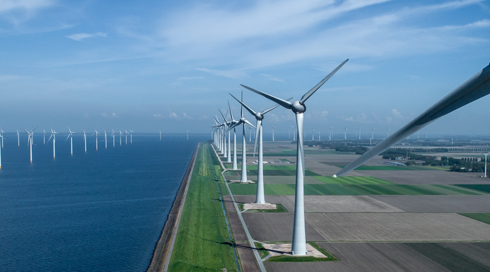6
Not every job requires one to constantly change where and how they live, but Offshore life requires just that. As such, one of the challenges of this line of work continues to be keeping up with your personal and professional habits in various environments. One of the more important ones is staying healthy and eating the right food, at the right time.
Maintaining proper nutrition is essential to stay energized, focused, and in good health during your time at sea. That is why, we wanted to provide some essential tips to ensure you are starting each day recharged, and in your best shape – at least, when it comes to what you consume!
3 Tips for Offshore Nutrition
From daily consumption guidelines to trusting your chefs to cook you the best and most delicious meals – here are three nutrition tips every Offshore Professional should consider!
Tip 1: Are You Drinking Enough Water?
Water is not exactly food, but it sure is important! Offshore work involves a certain amount of psychical work, to say the least, and physical work causes you to lose water – fast!
If your profession requires you to be more physically active than others, depending on the region you are working in, your daily consumption can range between 3-8L of water everyday so that your body can replace the steam it lets off. Your work performance, concentration or decision making may also suffer when you are dehydrated, even if you don’t notice. It might be a good idea to drink a cup of water every hour, even if you don’t feel thirsty yet, to ensure that you have enough water in your system. Keep in mind that the hydration requirements may go up or down depending on how hot it is out there, whether you are working indoors or outdoors or if your job requires greater amounts or physical effort or not – so you be the judge!
Tip 2: Balanced, and Protein Heavy, Diet
When working offshore, it's crucial to focus on balanced meals that provide the necessary nutrients. Aim to include a mix of lean proteins, complex carbohydrates, healthy fats, and fruits and vegetables in your diet. This combination will help sustain your energy levels and support your overall well-being.
Circling back to protein – protein is the cornerstone of our muscles and is required to maintain and develop them, especially if you are being physically active. In order to not feel tired and worn out, it is a good idea to consume enough protein to fuel your body, which ranges `between 1-2 GRs of protein for each KG you weigh, but this is dependent on a number of contributing factors such as age, muscle mass or activity intensity.
Also, if you are pregnant or have reasonable suspicions that you might be in early stages of a pregnancy, please pay more attention to both water and protein intake tips as even though they are essential for everyone, they are more critical for you! To explore how pregnancy while working offshore can be a demanding yet increasingly manageable challenge, check out our interview with Ally Cedeno, founder of Women Offshore Foundation, and how she found out she was expecting during an offshore tour!
Tip 3: Trust Your Chefs
Luckily, when you are offshore, you are often accompanied by skilled Professionals just like you – with some of them knowing their way around the kitchen! Chefs onboard will make sure that there is enough variety to go around so everyone can pick and select what they want to eat, and these choices will usually tick off many requirements we already mentioned.
Additionally, if you have special dietary requirements whether due to health or for personal reasons, you can always communicate with the Chefs on board to ask if they can cover your needs or not. However, it is important to remember that they too have duties and regulations to follow, so some compromise might be in order. It is also a good idea to remember that you can always bring a certain amount of food items with you when you start your current rotation, such as canned goods and other easy to preserve items, if need be.
Offshore nutrition is a crucial aspect of maintaining good health and performance while working at sea. By prioritizing balanced meals, staying hydrated, planning for dietary needs, and being mindful of portion sizes, you can ensure that your diet supports your well-being throughout your offshore assignment. With a little preparation and awareness, you can make smart food choices that will help you thrive on the high seas.
Are you an experienced chef looking for your next offshore assignment? You are then welcome to check out our vacancies here and explore exciting opportunities offered by our various Clients!
.png)
.png)


